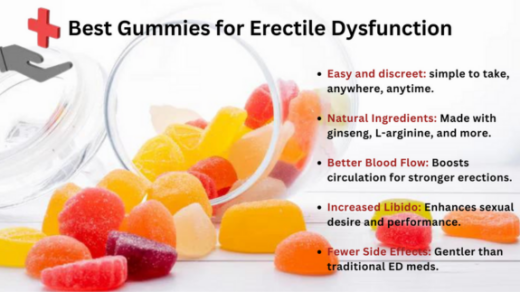Introduction
Let’s face it, talking about sexual health can be a bit awkward. However, it’s a crucial part of overall well-being that often gets swept under the rug. When we think of men’s sexual health issues, erectile dysfunction (ED) is usually the first thing that comes to mind. But several other conditions can affect men, often with equally significant impacts on their lives. Understanding these issues and how to address them is essential for a healthy, fulfilling life.
What is Erectile Dysfunction?
Erectile Dysfunction, commonly known as erectile dysfunction, is the inability to achieve or maintain an erection sufficient for satisfactory sexual performance. It’s more common than many might think, affecting millions of men worldwide.
Causes of Erectile Dysfunction
Physical Causes
Physical causes of ED are numerous. They include cardiovascular diseases, diabetes, high blood pressure, high cholesterol, and obesity. These conditions affect blood flow, which is crucial for an erection.
Psychological Causes
Psychological factors such as stress, anxiety, and depression can also lead to ED. The brain plays a key role in triggering the physical events that cause an erection, starting with feelings of sexual excitement.
Treatment Options for erectile dysfunction
Treatment for erectile dysfunction often starts with lifestyle changes, like improving diet and exercise. Medications such as Viagra and Cialis are common treatments. In some cases, counseling or therapy can help, especially when psychological factors are involved.
Erectile dysfunction (ED) is a common condition that affects a man’s ability to achieve or maintain an erection suitable for sexual intercourse. It can be caused by a variety of factors, including psychological issues, medical conditions, and certain medications. Treatment options for ED depend on the underlying cause and may include:
Lifestyle Changes:
- Exercise regularly to improve blood flow and cardiovascular health.
- Maintain a healthy diet rich in fruits, vegetables, whole grains, and lean proteins.
- Lose weight if you are overweight or obese.
- Quit smoking and limit alcohol consumption.
- Manage stress through relaxation techniques, counseling, or meditation.
Psychological Counseling:
- If psychological factors such as anxiety, depression, or relationship problems are contributing to erectile dysfunction, counseling or therapy may be beneficial.
- Sex therapy can help address issues related to sexual desire, performance anxiety, and sexual response.
Vacuum Erection Devices:
- These devices use a vacuum to increase blood flow to the penis, and then a ring is placed at the base of the penis to maintain the erection.
Surgical Treatment:
- Penile implants are a surgical option for men who cannot use other treatments due to medical reasons or who have not had success with other therapies.
- There are two types of implants: inflatable and malleable.
Alternative and Complementary Therapies:
- Some men may explore alternative treatments such as acupuncture, herbal supplements, and nutritional therapy. However, the effectiveness and safety of these treatments can vary, and they should be used with caution and under the guidance of a healthcare provider.
Addressing Underlying Health Conditions:
- Treating underlying health issues such as diabetes, high blood pressure, high cholesterol, and obesity can improve erectile dysfunction symptoms.
- Managing or treating conditions that affect blood flow, such as atherosclerosis or vascular disease, may also help.
- It is important for men experiencing ED to consult with a healthcare provider to determine the most appropriate treatment based on their health status and the cause of their erectile dysfunction. A healthcare provider can also discuss the potential risks and benefits of each treatment option and help develop a comprehensive treatment plan.
Sildenafil Citrate
Sildenafil Citrate contains many medicines, some are known and some are unknown brands but doctors usually prescribe these two medicines, Cenforce 200 and Cenforce 150.
How Sildenafil Citrate Works
Sildenafil Citrate is a type of phosphodiesterase type 5 (PDE5) inhibitor. By blocking PDE5, Sildenafil Citrate helps to relax the blood vessels in the penis, allowing for increased blood flow when sexually stimulated. This mechanism helps in achieving a satisfactory erection.
Benefits and Side Effects
While Sildenafil Citrate is effective for many men, it can have side effects. Common side effects include headaches, flushing, an upset stomach, and nasal congestion. More serious side effects, though rare, can include sudden vision loss, hearing loss, and priapism (a prolonged and painful erection).
Dosage
Cenforce 200: This refers to sildenafil citrate tablets with a strength of 200 mg. It is typically prescribed for men who require a higher dosage for effective treatment.
Cenforce 150: This refers to sildenafil citrate tablets with a strength of 150 mg. It is commonly used as an alternative to lower or moderate doses of sildenafil.
Follow Some Precautions to Make Cenforce Work
To ensure the effectiveness and safety of Cenforce, it is important to follow certain precautions and guidelines. Here are some important points to consider:
Consult a Doctor: Before starting Cenforce, it is crucial to consult with a healthcare provider to determine if it is the right medication for you. Discuss your medical history, current health conditions, and any medications you are currently taking to avoid potential interactions.
Follow Prescription Instructions: Take Cenforce exactly as prescribed by your doctor. Do not take more or less of the medication, and do not take it more frequently than recommended.
Timing: Cenforce should be taken about 30 minutes to 1 hour before sexual activity. It is important to note that sexual stimulation is required for the medication to work.
Avoid Alcohol and Grapefruit Juice: Alcohol and grapefruit juice can interact with sildenafil and may increase the risk of side effects. It is advisable to avoid or limit the consumption of these substances while taking Cenforce.
Do Not Combine with Nitrates: Cenforce should not be taken with nitrates (often prescribed for chest pain), as the combination can lead to a dangerous drop in blood pressure.
Be Honest About Your Health: Inform your doctor about all your health conditions, especially if you have heart problems, liver or kidney disease, low or high blood pressure, eye problems, bleeding disorders, or if you have had a stroke or heart attack.
Store Properly: Keep Cenforce in its original packaging, in a cool, dry place away from direct sunlight. Make sure it is stored out of reach of children and pets.
Do Not Share: Do not share your Cenforce with others, as their condition may differ from yours and they may require a different treatment.
Regular Check-ups: Regularly check with your healthcare provider to ensure that Cenforce is working effectively and to monitor for any potential side effects or health issues.
Remember, Cenforce is not a cure for ED but a treatment that can help improve erectile function. It is important to maintain open communication with your healthcare provider to ensure the best possible outcome and to adjust your treatment plan as needed.
What is Premature Ejaculation?
Premature Ejaculation (PE) is when ejaculation happens sooner during sexual intercourse than one would like. It’s a common sexual complaint and can cause distress for both partners.
Causes of PE
Biological Causes
PE can be caused by abnormal hormone levels, inflammation of the prostate or urethra, or abnormal reflex activity of the ejaculatory system.
Psychological Causes
Psychological issues such as anxiety, early sexual experiences, and relationship problems can also contribute to PE.
Treatment Options for PE
Treatments for PE include behavioral techniques, counseling, and medications. Techniques like the stop-start method and the squeeze technique can help. Medications like antidepressants can also be effective.
What is Low Libido?
Low libido, or reduced interest in sex, can affect men of any age. It’s not unusual to have fluctuating interest in sex, but persistently low libido can be a sign of underlying issues.
Causes of Low Libido
Hormonal Imbalances
Low levels of testosterone can lead to reduced libido. Hormonal imbalances can result from aging, medications, or medical conditions.
Lifestyle Factors
Lifestyle factors such as stress, lack of sleep, and unhealthy habits like smoking and excessive alcohol consumption can also affect sexual desire.
Treatment Options for Low Libido
Treatment might include hormone therapy if hormonal imbalances are at play. Improving lifestyle factors, such as managing stress and getting regular exercise, can also help. Counseling or therapy can address psychological factors.
What is Peyronie’s Disease?
Peyronie’s Disease is a condition where fibrous scar tissue develops on the penis, causing curved, painful erections. While a slightly curved erection isn’t necessarily a cause for concern, Peyronie’s Disease can cause significant pain and bend.
Causes of Peyronie’s Disease
Physical Trauma
Trauma to the penis, such as being bent or hit, can lead to the development of scar tissue.
Genetic Factors
There might be a genetic component, as the condition sometimes runs in families.
Treatment Options for Peyronie’s Disease
Mild cases might not require treatment beyond pain management. In more severe cases, medication or surgery might be necessary to remove the scar tissue.
What is Delayed Ejaculation?
Delayed Ejaculation is the difficulty or inability to ejaculate despite adequate sexual stimulation and desire. It’s less common than other sexual dysfunctions but can still cause distress.
Causes of Delayed Ejaculation
Psychological Causes
Mental health issues like depression and anxiety can delay ejaculation. Relationship issues and a history of sexual trauma can also contribute.
Medication Side Effects
Certain medications, especially antidepressants, can affect sexual function and delay ejaculation.
Treatment Options for Delayed Ejaculation
Treating delayed ejaculation often involves addressing underlying psychological issues through therapy. Adjusting or changing medications can also help if they are the cause.
What is Performance Anxiety?
Performance anxiety is the fear of not being able to perform well during sexual activity. This anxiety can itself lead to sexual dysfunctions, creating a cycle that’s hard to break.
Causes of Performance Anxiety
Psychological Factors
Fear of sexual failure, low self-esteem, and previous negative sexual experiences can contribute to performance anxiety.
Relationship Issues
Tension and lack of communication in a relationship can also lead to performance anxiety.
Treatment Options for Performance Anxiety
Treatment often involves therapy to address the anxiety and any underlying psychological issues. Open communication with a partner can also help reduce anxiety.
Conclusion
Addressing sexual health issues is vital for overall well-being. These conditions, though common, can be effectively managed with the right approach. Don’t hesitate to seek professional help if you’re experiencing any of these issues. Your sexual health is an important part of your life, and addressing problems early can lead to better outcomes and a happier, healthier you.



